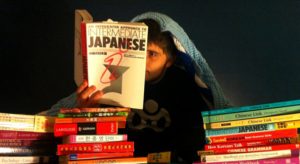
Sound Cool in Spanish with these 40+ Spanish Slang Words
“Cool” in Spanish is “guay”. And here are 40+ more cool Spanish words from all around the Spanish speaking world!
Unconventional language hacking tips from Benny the Irish polyglot; travelling the world to learn languages to fluency and beyond!

“Cool” in Spanish is “guay”. And here are 40+ more cool Spanish words from all around the Spanish speaking world!

Months in French are similar to English. Here’s everything you need to know to learn the French months.

Speaking a language is a skill. Like any other skill, if you really want to get good at it then it’s going to require practice. For languages that means lots of time talking, meeting new people, socializing, getting out there and making mistakes. If you’re an extrovert that all sounds great.
But if you’re an introvert – that’s terrifying.
Introverts and extroverts just don’t function the same as each other. As a result, trying to force an introvert to study like an extrovert or vice versa is never going to work as well as finding a learning style that’s tailored to how that person learns best.
Thankfully if you’re on the introverted side of things, all is not lost.

The decision I made seven years ago to study Chinese at university changed my life. Right from the beginning I decided that I didn’t just want to learn some Mandarin, I wanted to be proficient. I wanted to speak the language to an advanced level and be able to read a newspaper and write characters with ease. It’s fair to say that I got stuck in immediately, and got completely immersed in my studies!
Seven years later, I can’t say that I’m perfect and don’t make any mistakes, or that I understand and know how to say everything. There’s still a lot of room for me to improve, but I have achieved my original goal. I can speak Mandarin fluently, and I know all the simplified and traditional characters other than the really rare ones. I speak and use Chinese every day, and it has really become a part of my life and a second language to me now.

“Would you like me to give you a formula for success? It’s quite simple, really. Double your rate of failure.”
—Thomas J. Watson, founder of IBM
Making mistakes is a fundamental part of every cognitive process, whether solving a math problem, making important decisions, or trying to convey meaning in a foreign language.
What’s more, making mistakes and learning from them is not simply a human skill. According to scientific research (link: http://www.sciencenewsforkids.org/2012/08/monkeys-mistake-detector/), animals not only learn from their own mistakes, but they can learn by observing their peers messing up. In the animal world, avoiding blunders may dramatically improve one’s chances of survival. Both humans and animals learn to live and live to learn. Human beings, however have a unique skill: the ability to process and ponder their mistakes.
This can be an advantage as well as a disadvantage. Let me explain why.

Learning a new language is valuable over time, but can seem intimidating at first. Learning how to remember words is essential to mastering your multilingual future.

You can have a 15 minute conversation in a new language after just 90 days -- guaranteed. Here why.

Every country has its own drinking traditions. Now you'll be able to say "cheers" everywhere you go. But beware: don't always clink glasses.

Want to learn a language? You’ll learn more, and faster, if you find a community of friends to learn with.
Social